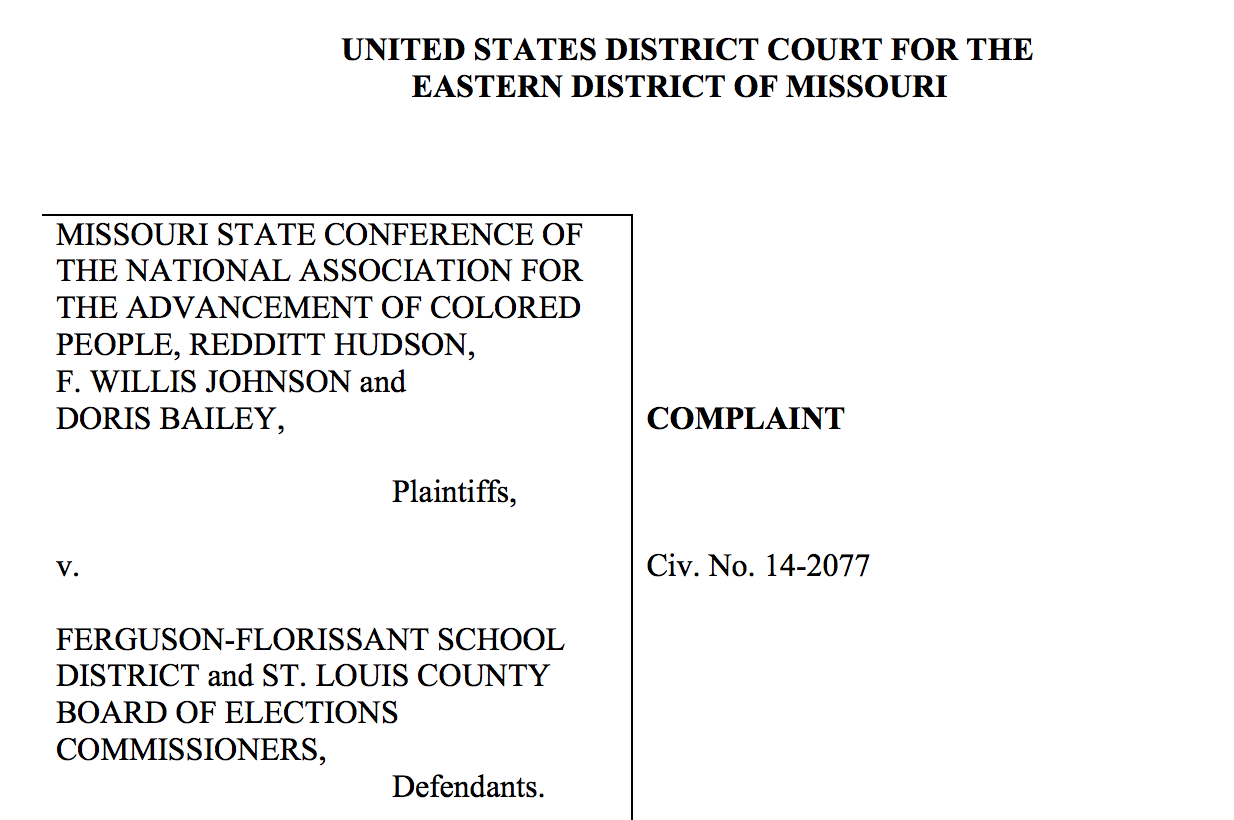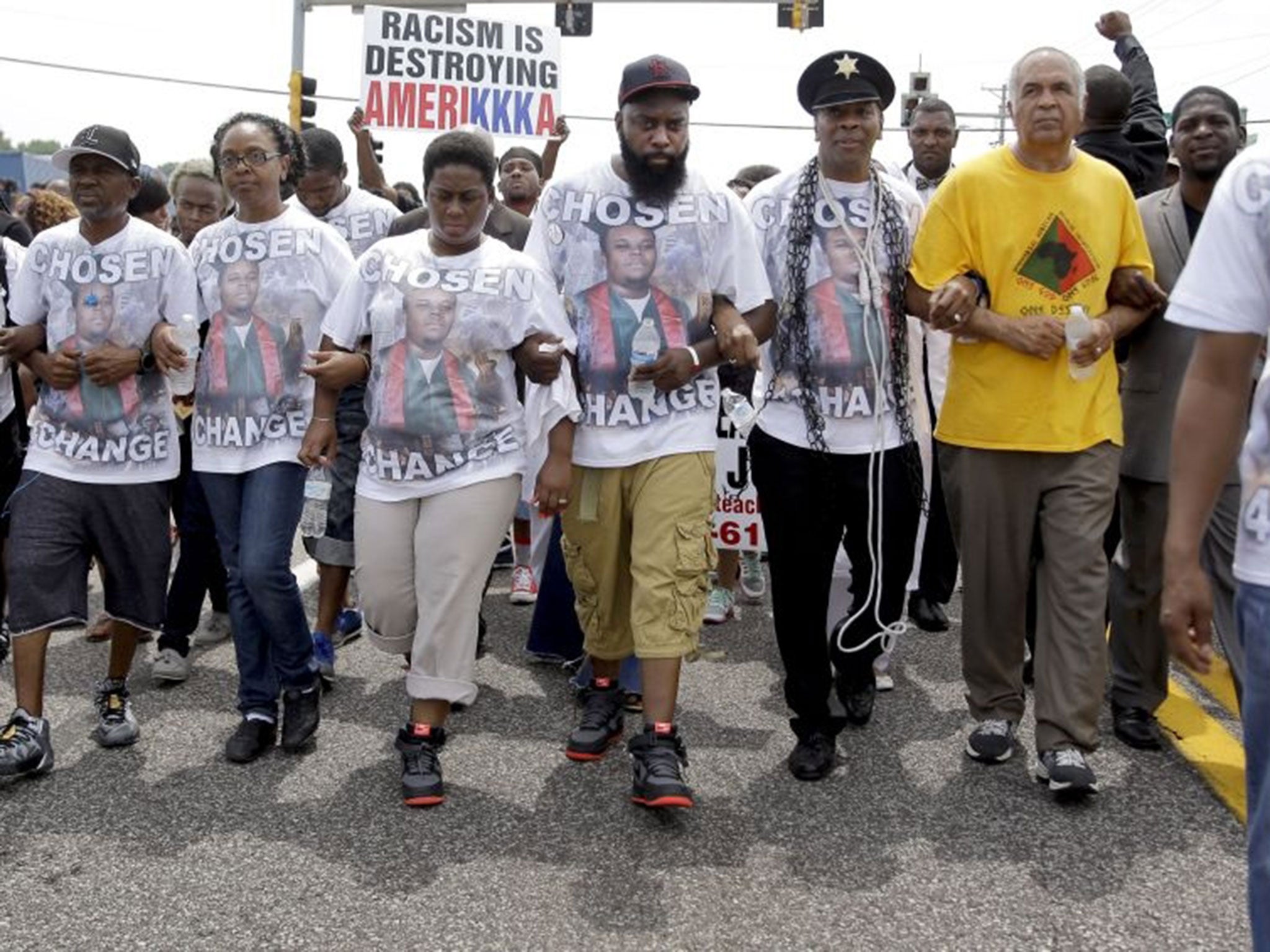Ferguson school boards is accused of racial bias
Activists say black residents are 'locked out' of the process to elect representatives to run their schools

Your support helps us to tell the story
From reproductive rights to climate change to Big Tech, The Independent is on the ground when the story is developing. Whether it's investigating the financials of Elon Musk's pro-Trump PAC or producing our latest documentary, 'The A Word', which shines a light on the American women fighting for reproductive rights, we know how important it is to parse out the facts from the messaging.
At such a critical moment in US history, we need reporters on the ground. Your donation allows us to keep sending journalists to speak to both sides of the story.
The Independent is trusted by Americans across the entire political spectrum. And unlike many other quality news outlets, we choose not to lock Americans out of our reporting and analysis with paywalls. We believe quality journalism should be available to everyone, paid for by those who can afford it.
Your support makes all the difference.The voting system used by the school board in Ferguson, a community that was infamously rocked by the killing of an unarmed black teenager, has been accused of operating a voting system that prevents minority parents electing representatives of their choice.
A lawsuit filed on Monday by the American Civil Liberties Union claimed the voting system “locks African-Americans out of the political process”.
At the moment, the voting system operated by the Ferguson-Florissant School District involves people from across the district choosing among the same group of candidates.

But the ACLU says a fairer system would be to create seven subdistricts, with candidates running in the areas where they live. This would allow people to choose candidates that better represent their community.
The lawsuit has been filed amid reports that in the school district, which includes most of Ferguson and 10 other towns in northern St Louis County, three of four students are black. However, there have never been more than two black members on the seven-person school board at the same time.
“The current at-large system dilutes the voting power of African-Americans in the district and undermines their voice in the political process,” Julie Ebenstein, a lawyer with the ACLU’s Voting Rights Project, said in a statement.
Ferguson found itself at the centre of international attention following the 2014 shooting by police of black teenager, Michael Brown. The shooting, and the subsequent decision not to charge the officer involved resulted in nationwide protests and some violent clashes in Ferguson.
A subsequent federal probe into the city’s law enforcement system resulted in a scathing report. Investigators determined that in “nearly every aspect of Ferguson’s law enforcement system,” African Americans were impacted at a severely disproportionate amount.

The ACLU claimed the area has endured a long history of racial discrimination.
The school district itself was created by a 1975 federal desegregation order intended to remedy the effects of discrimination against African-American students. Yet, over 40 years later, only two of the seven school board members are African-American, the ACLU said.
“Ferguson's long history of shutting African-Americans out of the electoral process continues to affect its school system,” said Ms Ebenstein. “This is unfair and unlawful.”
Cindy Ormsby, a lawyer for the school district, said the district would win the case.
“We will show that the Ferguson-Florissant school district has a long history of African-American representation under the existing rules,” Ms Ormsby said in a statement, acording to USA Today.
“In the context of the school district’s rapidly changing demographics, in which African Americans are the majority population, the current system facilitates the expansion of African-American representation, while the plaintiff’s proposal does not.”
The lawsuit, filed in December 2014, is playing out is edging towards a settlement with the Justice Department to overhaul its police department.
African Americans make up 67 per cent of the population in Ferguson, but they accounted for 85 per cent of the drivers stopped by police, 90 per cent of the people who were issued tickets and 93 per cent of the people arrested, a three-year examination of suspect stops found.
Join our commenting forum
Join thought-provoking conversations, follow other Independent readers and see their replies
Comments